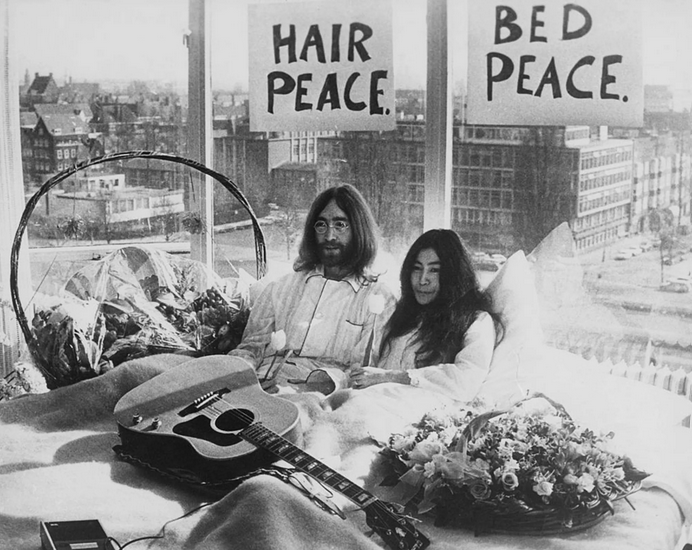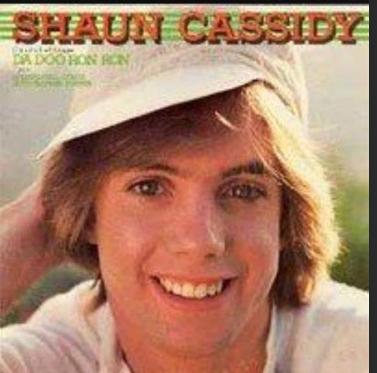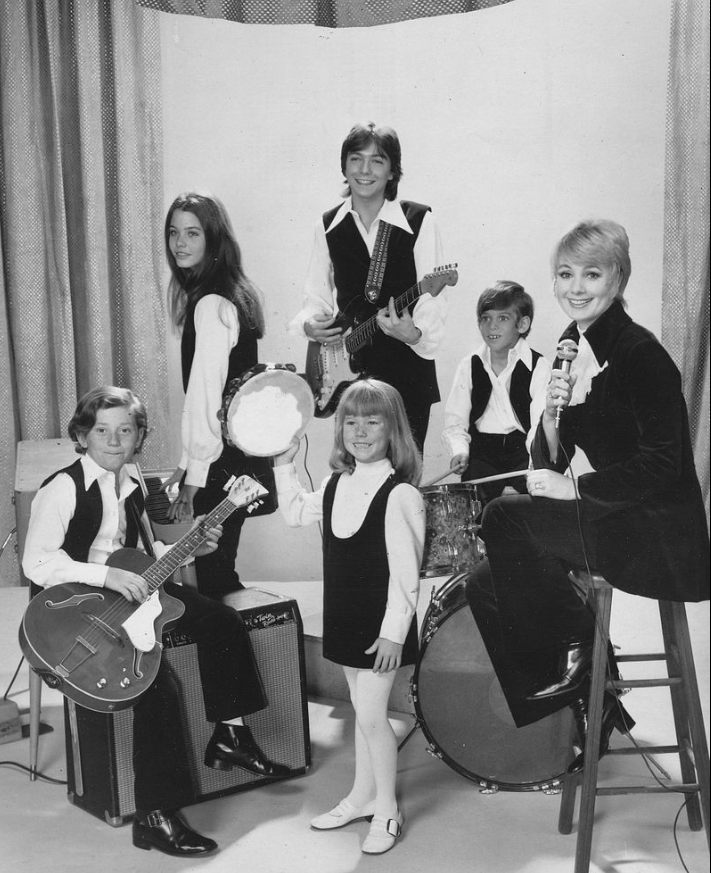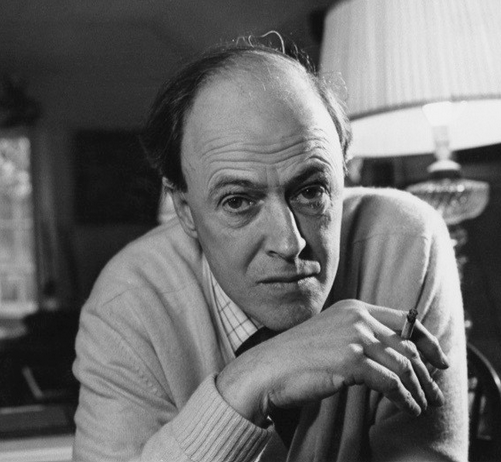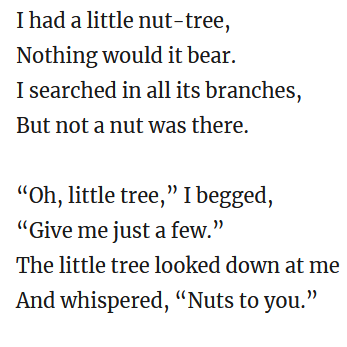Poetry Challenge #317-Digging Up Fossils
Fossils are the preserved remains of a once-living thing from a past geological age. Sometimes they’re actual creatures, and sometimes they are impressions preserved in rock that show what the creature looked like.
Why am I sharing this?
Because October 11th is. . . National Fossil Day!
Even the National Park Service celebrates Fossil Day! Click over later for a list of NPS ways to celebrate fossils!
Fossils are found in Rocks
Fun Fossil ideas can be found at playideas.com.
Here are 25 Fun Fossil Ideas for Kids
There are books about Fossils. Here’s my personal fav: Old Rock (is not boring) by Deb Pilutti:
And my all-time favorite Rock on his way to becoming a Fossil:
Fossilization is also in the works for Nobel Prize winning novelist & poet Francois Mauriac, who coincidentally or not, was born on National Fossil Day: Oct 11, 1885. As a precursor to this week’s prompt let’s start with some of his words that should be etched in rock:
Poetry Challenge #317
Digging Up Fossils
Maybe you have old notebooks/files containing fossilized poems, poems written in another time in your life.
Find an old notebook or file—the older the better—and read through some of your old writing. See if you can find something that has preserved an impression of a different time or feeling. Using that “fossil”, write a new poem.
You can use some of the actual words or write new and capture a feeling or impression of the original.
Set Your Timer for 7 Minutes
Start Writing!
Don’t Think About it, Write It!
Cindy Faughnan and I began this 7-Minute Poetry Challenge 2700+ days ago. Now we take turns creating prompts to share with you. Our hope is that creatives—children & adults—will use our prompts as springboards to word play time. If you join us in the Challenge, let us know by posting the title, a note, or if you want, the whole poem in the comments.
Click on Fishbowl link and sign up to receive email notifications from Kelly's blog (aka The Fishbowl):
All who subscribe, comment or share a poem will be entered in . . .
Poetry Challenge #316-Come Together
John Lennon probably doesn’t need an introduction. As a co-founder of The Beatles with Paul McCartney, he (and the group) became famous in the 1960’s. He wrote many, many songs for the group, and many more after The Beatles broke up.
Born as John Winston Lennon on October 9th, 1940*, in Liverpool, England, little did his parents know that their son would become one of the most famous musicians of the era. John spent his childhood in a suburb of Liverpool with his aunt, as his parents had separated when he was five years old.
*Full Disclosure: when we decided on featuring John Lennon in this week’s prompt, we thought his birthday was Oct 6th, because that’s what some Internet Search brought up. That info was incorrect. John Lennon’s birthday is Oct. 9th. (Maybe whomever wrote it first read it upside down) Moral: check your sources!
Anyhow…Lennon’s work is worth celebrating for more than one day—why not Lennon all week?!
Anyone who says songwriters are not poets read on. Below are partial lyrics for Imagine. Listen to Imagine-click!
John & Yoko’s Honeymoon, Bed in for Peace, from March 25 to March 31, 1969.
Poetry Challenge #316
Come Together
This prompt may find you humming and tapping your foot! Listed below are titles of some of the songs Lennon wrote. Choose 3-5 titles and incorporate them into a poem of your own. Extra credit if you create a catchy rhythm or rhyme.
Set Your Timer for 7 Minutes
Start Writing!
Don’t Think About it, Write It!
And whenever you’re in NYC, take a stroll up Central Park West to visit Strawberry Fields, listen for the music!
Cindy Faughnan and I began this 7-Minute Poetry Challenge 2700+ days ago. Now we take turns creating prompts to share with you. Our hope is that creatives—children & adults—will use our prompts as springboards to word play time. If you join us in the Challenge, let us know by posting the title, a note, or if you want, the whole poem in the comments.
Click on Fishbowl link and sign up to receive email notifications from Kelly's blog (aka The Fishbowl):
All who subscribe, comment or share a poem will be entered in . . .
Poetry Challenge #315-Get Happy!
So maybe you aren’t old enough to remember rushing home to crowd around the TV Friday nights because The Partridge Family was on!
Hello, world, hear the song that we're singin'
C'mon get happy!
A whole lot of lovin' is what we'll be bringin'
We'll make you happy!
The big swoon was David Cassidy, the oldest brother/lead singer/best hair flipper of all time… (well, of the Partridge Family anyway) but dang, Shaun was the cute one. Right?
WRONG!
Shaun Cassidy born September 27, 1958, was David Cassidy’s half-brother and the son of Jack Cassidy and Shirley Jones—the Partridge Family’s mother.
But he was not, as everyone thought, the youngest brother on the show. Shaun Cassidy wasn’t even on the show.
Maybe that’s reason enough for him to get happy. For while nobody anywhere know what happened to any other of those Partridge Kids, one need only click the remote to find out what Shaun baby has accomplished. He has created/written/produced scads of TV series including American Gothic, Roar, Invasion, and New Amsterdam. He has albums. Acted in The Hardy Boys Mysteries, Breaking Away and General Hospital. What’s more, Shaun is a poet.
Need more convincing? He sang Do You Believe in Magic?
Poetry Challenge #315
Come on! Get Happy!
Take a moment to think of all the words you possibly can that rhyme with happy. If you need help, pull out a rhyming dictionary—on-line or otherwise. Once you have a list of 5-10 words, weave them into a poem.
And then, because we absolutely know you have time left on the clock, rearrange and repeat words to give your poem a snap-happy rhythm.
Set Your Timer for 7 Minutes
Start Writing!
Don’t Think About it, Write It!
Post-poeming reward yourself with a sing-along. Click on the link to view the lyrics included version of The Partridge Family Theme Song.
Nothing’s better than being together/when we’re singing
When we’re singing!
Cindy Faughnan and I began this 7-Minute Poetry Challenge 2700+ days ago. Now we take turns creating prompts to share with you. Our hope is that creatives—children & adults—will use our prompts as springboards to word play time. If you join us in the Challenge, let us know by posting the title, a note, or if you want, the whole poem in the comments.
Click on Fishbowl link and sign up to receive email notifications from Kelly's blog (aka The Fishbowl):
All who subscribe, comment or share a poem will be entered in . . .
Poetry Challenge #314-See What to Do with It…
Today we’re veering a bit to the dark side of poetry, and maybe the biggest challenge of all: editing.
Dum-duh-dum-dum….
Why ever for? Because whether you know it or not, modern literature such as it is, IS because of today’s birthday boy, Maxwell Perkins. And if any of our poems IS going to be something they will need some of what he was: a thoughtful editor.
Maxwell Perkins was an editor at the publishing house Charles Scribner’s Sons.
He discovered and edited:
F. Scott Fitzgerald (The Great Gatsby),
Ernest Hemingway (The Old Man and the Sea),
Marjorie Kinnan Rawlings (The Yearling), and
Thomas Wolfe (Look Homeward Angel).
Many of the books Perkins edited became best sellers and award winners; many of the authors Perkins discovered became household names.
Want to know more: A. Scott Berg’s biography makes excellent reading!
Kenneth D. McCormick, editor-in-chief of Doubleday & Company once said:
“Perkins was unlikely for his profession: He was a terrible speller, his punctuation was idiosyncratic, and when it came to reading, he was by his own admission ‘slow as an ox.’ But he treated literature as a matter of life and death.”
If, like Perkins, you’re “slow as an ox” but want to know more about him watch Genius, a 2016 movie starring Colin Firth is about his relationship editing Thomas Wolfe. (Colin, Jude, Nicole, Laura…the cast is reason enough to watch!)
Here’s the trailer for Genius—fascinating watching!
But for now, enough avoiding the inevitable: By now you will have already followed—many many times over in the course of this challenge—what I consider Perkins’ finest pin-up advice:
“Just get it down on paper, and then we’ll see what to do with it.” ― Maxwell Perkins
Poetry Challenge #314
See What to Do with It…
In honor of Maxwell Perkins’ birthday, Sept 20th, it’s time to use your editing skills. It’s said that Maxwell Perkins forced Thomas Wolfe to cut 90,000 words from his first novel (although some sources think that’s an exaggeration). However, we often use too many words, and our writing would be better if we tightened it.
Choose a poem you’ve written that has at least 50 words. Now take out ¼ of those words—if it’s a 50 word poem, try to get it to 38 words. You can delete words or change a phrase to one word—whatever works to get to your new word count. Read the new poem aloud. Is it better? Can you cut another ¼ of the words?
Set Your Timer for 7 Minutes
Start Writing!
Don’t Think About it, Edit!
After you’re finished editing, reward yourself with this delightful read about Perkins on Lithub!
Cindy Faughnan and I began this 7-Minute Poetry Challenge 2700+ days ago. Now we take turns creating prompts to share with you. Our hope is that creatives—children & adults—will use our prompts as springboards to word play time. If you join us in the Challenge, let us know by posting the title, a note, or if you want, the whole poem in the comments.
Click on Fishbowl link and sign up to receive email notifications from Kelly's blog (aka The Fishbowl):
All who subscribe, comment or share a poem will be entered in . . .
Poetry Challenge #313-Gross and Gory
Pass the chocolates! Slice the giant peach! And BEASTLY school masters, get out the whipping stick! It’s Roald Dahl’s birthday!
Roald Dahl, creator of Willy Wonka, James and the B.F.G. was born on September 13, 1916. Talk about cool dude, he was born in Wales, went to boarding school—hello Harry Potter! —was a World War flying Ace—Yo! Snoopy! —and an intelligence Agent. Which in themselves are way enough, but get this:
“While Dahl was studying at Repton [a boarding school in England], the chocolate company ‘Cadbury’ would send boxes of chocolate to there to get tasted.
“This is where Dahl took inspiration for his most notable work ‘Charlie and the Chocolate Factory’ which was published in 1963.”—https://www.famousauthors.org/roald-dahl
BOY, TALES OF A CHILDHOOD is Dahl’s autobiography!
Highly recommended to readers of all ages and as a read-aloud.
Warning: It is not sunshine and lollipops…
Maybe the secret to Dahl’s success as an author and poet is simple.
He was not afraid to go THERE!
But not all the time. Here’s one of Dahl’s poems I found floating on the internet:
Here’s what Polly Barbour say about whether his stories are violent:
“Well, yes, they are people are eaten, children become lunch for a crocodile and a farmer becomes a nice juicy sandwich for a pig; eyeballs pop our as a result of too much television, and a stomach develops a vocabulary of its own when faced with extreme hunger.”- Polly Barbour
Poetry Challenge #313
Gross and Gory as Dahl
In her analysis of Roald Dahl’s poetry, Polly Barbour wrote that Dahl is a
“rare breed of author and poet who accomplishes the seemingly impossible; he writes stories and poems that children want to read and adults are delighted to read to them; his poems are just gory and gross enough for even the non-reading little boy to be captivated by, but they also contain a message or a lesson that pleases his parents.”
For today’s prompt, tap into that potty-humor-loving 4-5-7-10-11-year-old you used to be and write a poem that will shock and disgust adults—especially the buttoned-up teacher/preacher/granny type.
Let yourself go! Have fun! And if you’re so inclined, add it a devilishly Dahl didactic “message” at the end.
Set Your Timer for 7 Minutes
Start Writing!
Don’t Think About it, Write It!
For more of Rold Dahl’s poetry click on the Roald Dahl fanpage!
Cindy Faughnan and I began this 7-Minute Poetry Challenge 2700+ days ago. Now we take turns creating prompts to share with you. Our hope is that creatives—children & adults—will use our prompts as springboards to word play time. If you join us in the Challenge, let us know by posting the title, a note, or if you want, the whole poem in the comments.
Click on Fishbowl link and sign up to receive email notifications from Kelly's blog (aka The Fishbowl):
All who subscribe, comment or share a poem will be entered in . . .
Poetry Challenge #312-What You Read in the News
In case you need permission, today (Sept 6th) is National Read-A-Book Day! What better way to celebrate than with poetry, but not just any poetry, newsy poetry ala our poet of the day, Christine Rhein, because it’s her birthday and she has a nose for news!
Christine Rhein, the daughter of German immigrants, was born in Detroit and has always lived in southeastern Michigan.
She is a former auto engineer and notes that she approaches poetry in the same way she crafted cars:
“Each poem presents a puzzle, with its components and features needing to fit and operate.”
“Although such poems can’t change the tragic circumstances they address, I like to think that, in some small way, I am honoring an individual’s life, and inviting my readers to do the same.”
The poem below, "Sunflowers" is included in a new poetry anthology, Busy Griefs, Raw Towns. All proceeds from the sale of the anthology are forwarded to the International Rescue Committee (IRC) to support continuing Ukraine relief efforts. More information about the anthology can be found by clicking here.
In an interview for ReadWritePoetry Blogspot, Nancy Chen Long noted how Rhein’s poetry collection, Wild Flight, contains several poems inspired by or based on the news.
Rhein’s poetry collection, Wild Flight, contains several poem based on news
When asked why she focuses on current events, Rhein’s said,
“Although such poems can’t change the tragic circumstances they address, I like to think that, in some small way, I am honoring an individual’s life, and inviting my readers to do the same.”-Christine Rhein
Here’s a selection from Wild Flight:
Poetry Challenge #312
What You Read in the News
Of her poems, Christine Rhein says, “When I write, I want a ride that’s not safe, smooth, or even steerable, but rather one that’s full of unexpected lunges, turns, and spins.”
For this prompt, choose something from the news as your subject. Use the headlines from that story as your title. It can either be the exact headline, or one you make up.
Write a poem inspired by or based on that story. Add twists and turns and unexpected lunges ala Rhein.
Set Your Timer for 7 Minutes
Start Writing!
Don’t Think About it, Write It!
Treat Yourself: Listen to Rhein read her poem “In Detroit, What Counts as Grace.”
And, when your poem is finished, reward yourself by READING A BOOK! Maybe mine and tell your friends to buy it, because THE HOUSE THAT RUTH BUILT is baseball!
Cindy Faughnan and I began this 7-Minute Poetry Challenge 2600+ days ago. Now we take turns creating prompts to share with you. Our hope is that creatives—children & adults—will use our prompts as springboards to word play time. If you join us in the Challenge, let us know by posting the title, a note, or if you want, the whole poem in the comments.
Click on Fishbowl link and sign up to receive email notifications from Kelly's blog (aka The Fishbowl):
All who subscribe, comment or share a poem will be entered in . . .
Poetry Challenge #311-Another Dark & Stormy Please!
The book Frankenstein by Mary Shelley was written in response to a challenge one evening around a fire.
The group, including Lord Byron, Percy Bysshe Shelley, and Mary Shelley as well as others, entertained each other during a rainy vacation by reading ghost stories and poems to each other. After several were read, the group challenged each other to write something better—and scarier—than what they had read.
Mary Shelley was born Mary Wollstonecraft Godwin on August 30, 1797, in London. Her mother, Mary Wollstonecraft was a “famed feminist” and author.
Alas, Shelley’s mother died just after her birth, leaving her with her father and half-sister. Daddy soon remarried—another Mary—Mary Jane Clairmont. The proverbial wicked stepmother, Mary Jane saw no reason to educate Shelley, but wanted her gone, so sent her off to boarding school.
In 1814, Mary began a scandalous relationship with poet Percy Bysshe Shelley. (Mary was 17; Percy was one of her father’s students.) Percy and Mary, with Mary’s stepsister, Jane, in tow, ran away to England together. From England, Mary and Percy traveled through Europe. That December Mary and Percy were married. Mary wrote all about it in History of a Six Weeks' Tour, published in 1817.
"As a child, I scribbled; and my favourite pastime, during the hours given me for recreation, was to 'write stories.’”- The Life and Letters of Mary Wollstonecraft.
Back to that night, that fire, that challenge:
Percy Shelley, known as one of the major British romantic poets, promptly forgot the challenge.
Lord Byron wrote a long, rambling poem.
And Mary Shelley, at age 19, wrote Frankenstein.
BTW: In 1818 when Frankenstein, or the Modern Prometheus debuted it was published anonymously. Many thought Percy Bysshe Shelley had written it since he penned its introduction.
Poetry Challenge #311
Another Dark & Storm Please!
In honor of Mary Shelley’s birthday, write a scary poem.
First, think of your audience. Think of what scares them—real or imagined.
Write scary! Boo!
Set Your Timer for 7 Minutes
Start Writing!
Don’t Think About it, Write It!
Cindy Faughnan and I began this 7-Minute Poetry Challenge 2600+ days ago. Now we take turns creating prompts to share with you. Our hope is that creatives—children & adults—will use our prompts as springboards to word play time. If you join us in the Challenge, let us know by posting the title, a note, or if you want, the whole poem in the comments.
Click on Fishbowl link and sign up to receive email notifications from Kelly's blog (aka The Fishbowl):
All who subscribe, comment or share a poem will be entered in . . .
Poetry Challenge #310-After Life
Any poet deemed stamp worthy by the U.S Postal Service is certainly deserving of a birthday shout out. Even if it’s only a six-cent stamp, issued in 1970. Seriously, in 1970 what could one mail for 6 cents? Ghost written letters…
Happy Birthday Edgar Lee Masters (August 23, 1868 – March 5, 1950).
Spoon River Anthology, by Edgar Lee Masters was published in 1915, and was both a masterpiece and scandalous—that era’s Peyton Place. It contained over 200 poems, each a comment from the dead in a graveyard in a small, midwestern town.
The poems wailed about unfairness, condemned other occupants of the cemetery, and scandalized husbands and wives and lovers. The poems were written in free verse which had still not been widely accepted at the time.
One critic called it “shredded prose.”
A few of the poems in Master’s Spoon River Anthology are about real people, but most of the characters were created using names Masters gathered in cemeteries in a couple Illinois towns. He mixed first names from one cemetery with last names from another before writing his imagined comments from the grave. The example below was based on Masters’ pioneering grandmother.
In case you’re wondering, here’s what Edgar Lee Master’s looked like…perhaps when skulking around graveyards or peeping in windows…. I just made that last bit up. A bit of gossip… (But this photo is real, filched from Google Images.)
“How shall the soul of a man be bigger than the life he lived?”—Edgar Lee Masters
Poetry Challenge #310
After Life
If you can, wander around an old graveyard and collect names and epitaphs. Mix them together and use the name you come up with as the title of your poem. Write your poem as though this made-up person is talking. You can include an epitaph if you want.
Set Your Timer for 7 Minutes
Start Writing!
Don’t Think About it, Write It!
Cindy Faughnan and I began this 7-Minute Poetry Challenge 2600+ days ago. Now we take turns creating prompts to share with you. Our hope is that creatives—children & adults—will use our prompts as springboards to word play time. If you join us in the Challenge, let us know by posting the title, a note, or if you want, the whole poem in the comments.
Click on Fishbowl link and sign up to receive email notifications from Kelly's blog (aka The Fishbowl):
All who subscribe, comment or share a poem will be entered in . . .













